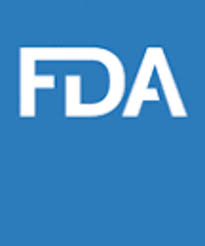Risk Evaluation and Mitigation Strategy Programs to Promote Appropriate Medication Use and Knowledge: Physician Interviews on Experiences with REMS Programs (CDER)
Data To Support Social and Behavioral Research as Used by the Food and Drug Administration
Interview Guide - Alemtuzumab
Risk Evaluation and Mitigation Strategy Programs to Promote Appropriate Medication Use and Knowledge: Physician Interviews on Experiences with REMS Programs (CDER)
OMB: 0910-0847
Physician Experience Interview Guide: Alemtuzumab
OMB Control No. 0910-0847
Expiration Date: 12/31/2022



Paperwork Reduction Act Statement: According to the Paperwork Reduction Act of 1995, an agency may not conduct or sponsor, and a person is not required to respond to a collection of information unless it displays a valid OMB control number. The valid OMB control number for this information collection is 0910-0847. The time required to complete this portion of the information collection is estimated to average 2 minutes per response, including the time for reviewing instructions, searching existing data sources, gathering and maintaining the data needed, and completing and reviewing the collection of information.
Send comments regarding this burden estimate or any other aspects of this collection of information, including suggestions for reducing burden to [email protected].
Good [morning/afternoon/evening]. May I speak with [Dr. X]?
Hi, my name is [Y], and I am calling as part of a study on physician experiences prescribing alemtuzumab, in which you agreed to take part. This research is being conducted by contractors at Brigham and Women’s Hospital / Harvard Medical School on behalf of the U.S. Food and Drug Administration (FDA).
Your participation in this interview is voluntary, and you may withdraw at any time. Your responses will be aggregated with other responses and analyzed in a de-identified manner. The entire interview will last approximately one hour. If you complete the full interview, we will send you a $100 Amazon gift card as a token of appreciation for participation or donate the money to a charity of your choice. Is this still a good time for us to talk? (IF NO: ARRANGE A TIME TO CALL BACK.)
Section A: Prescribing and Enrollment Requirements
(expect to spend about 10 minutes on this section)
Approximately when was the last time you prescribed alemtuzumab?
Approximately how many of your patients have you prescribed alemtuzumab to over the last 3 years?
As you know, the FDA requires a special safety program for alemtuzumab called Risk Evaluation and Mitigation Strategies or REMS. The purpose of the REMS program is to ensure alemtuzumab is used in a way that its benefits outweigh its risks. As part of the REMS program, physicians must go through an enrollment process administered by the manufacturer, which typically involves such activities as reviewing certain materials, training, and filling out forms.
Approximately how many years ago did you first complete the enrollment process for alemtuzumab?
What do you recall about the content, elements, and length of the enrollment process?
For what risks of alemtuzumab was information provided in the enrollment process?
Was there a knowledge assessment included with the enrollment process?
About how long did the enrollment process take?
Overall, what do you think about the enrollment process?
How useful was the enrollment process to you?
How easy was the enrollment process to complete?
Do you think other physicians would be more likely to prescribe the drug without the enrollment process? Why?
Do you think the enrollment process for alemtuzumab should be necessary to prescribe the drug?
How can the enrollment process be improved?
Should a knowledge assessment be required as part of the enrollment process?
Should prescribers have to re-enroll each year instead of once?
Should prescribers be compensated for the time spent on the enrollment process?
Section B: Patient Initiation and Monitoring
(expect to spend about 45 minutes on this section)
Now we’ll turn to your experiences prescribing alemtuzumab (expectation: 15 min)
When was the last time you started a patient on alemtuzumab?
Do you recall if any patients you started on alemtuzumab were referred to you by other physicians in your specialty? If YES, why?
When you start patients on alemtuzumab, what risks do you usually discuss with them?
Which risks of alemtuzumab concern you most and why?
As part of the REMS program, patients are also required to follow certain “safe use requirements” prior to and while taking alemtuzumab. (expectation: 30 min)
To your knowledge, what are these safe use requirements?
Patients must be counseled on risks of autoimmune conditions, infusion reactions, strokes, and malignancies; be monitored for infusion reactions after each infusion; get complete blood count tests, urinalysis, and thyroid function tests prior to and while on treatment; and get a skin exam annually.
When you prescribe alemtuzumab, how much time on average, do you or someone on your team spend explaining to patients the safe use requirements related to the drug?
Who on your clinical team is primarily responsible for helping patients complete administrative paperwork or enrollment forms involved with the safe use requirements?
Other than the materials associated with the safe use requirements, do your patients receive from you or your team any other materials describing the benefits or risks of taking alemtuzumab? If YES, what materials?
For example, published articles or stories, links to manufacturer or non-manufacturer websites, or pamphlets or brochures produced by the manufacturer, you, or your institution.
How do your patients usually react to the risks, and safe use requirements associated with alemtuzumab?
Probe on how the interviewee handles these reactions
After talking with them about the risks and safe use requirements, have you had patients seek another treatment option? If so, how frequently does this happen? Why?
In general, what have you heard from your patients about their experiences in meeting the safe use requirements?
Follow-ups if needed
Are your patients generally able to fulfill the safe use requirements, and according to the recommended schedule?
Have patients reported any issues that affect their ability to fulfill the safe use requirements? If so, what are those issues, and have you been able to help your patients resolve them?
Do you think the safe use requirements are necessary to ensure safe use of alemtuzumab?
Probe: If yes, why? If no, why not?
Probe: To what degree would safe use steps be performed in absence of REMS?
Would you be more likely to prescribe alemtuzumab if it were not subject to safe use requirements?
Please elaborate.
What recommendations do you have for improving the patient safe use requirements for alemtuzumab?
Finally, do you have any additional recommendations for improving safe prescribing and use of alemtuzumab overall?
Section C: Wrap-Up
(expect to spend about 3-5 minutes on this section)
Is there anything I haven’t asked about that you would like to discuss?
To wrap up, I have a few demographic questions.
What gender do you identify as?
Male
Female
Prefer not to answer
Which of the following best describes your race?
American Indian or Alaska Native
Asian
Black or African-American
Native Hawaiian or Other Pacific Islander
White
Prefer not to answer
Are you of Hispanic, Latino, or Spanish origin?
Yes
No
What year did you graduate from medical school?
What best describes your specialty?
Not to be offered as possible answers
Allergy/Immunology
Anesthesiology
Cardiology
Dermatology
Endocrinology
Emergency Medicine
Family/General Practice
Geriatrics
Internal Medicine
Medical Genetics
Neurological Surgery
Nephrology
Neurology
Obstetrics/Gynecology
Oncology
Ophthalmology
Orthopedics
Otolaryngology
Pathology
Pediatrics
Physical Medicine and Rehab
Plastic Surgery
Preventive Medicine
Psychology
Pulmonology
Radiology
Rheumatology
Sleep medicine
Surgery
Urology
Other (Please specify
In what ZIP code is your practice located?
In what clinical settings do you prescribe alemtuzumab? You may select more than one.
Outpatient clinic (solo practice)
Outpatient clinic (group practice)
Community hospital (non-military/VA)
Academic hospital (non-military/VA)
Military or VA hospital
Other (Please specify)
What percentage of your professional time is spent in direct patient care?
Have you received any of the following from a manufacturer of alemtuzumab over the past three years?
Speaker fees
Payment for membership on an advisory board
Research grants
Other benefits (Please specify)
That is all the questions I have for you. Is there anything I haven’t asked about that you would like to discuss? How should we provide the token of appreciation? [If they would like it sent to them, ask for email address]. We will send it within the week.
If additional questions arise, please contact the study principal investigator, Dr. Ameet Sarpatwari at 617-525-8890.
Thank you for your time and your insights. I appreciate your speaking with me.
| File Type | application/vnd.openxmlformats-officedocument.wordprocessingml.document |
| Author | Sarpatwari, Ameet,Ph.D.,J.D. |
| File Modified | 0000-00-00 |
| File Created | 2022-05-23 |
© 2026 OMB.report | Privacy Policy